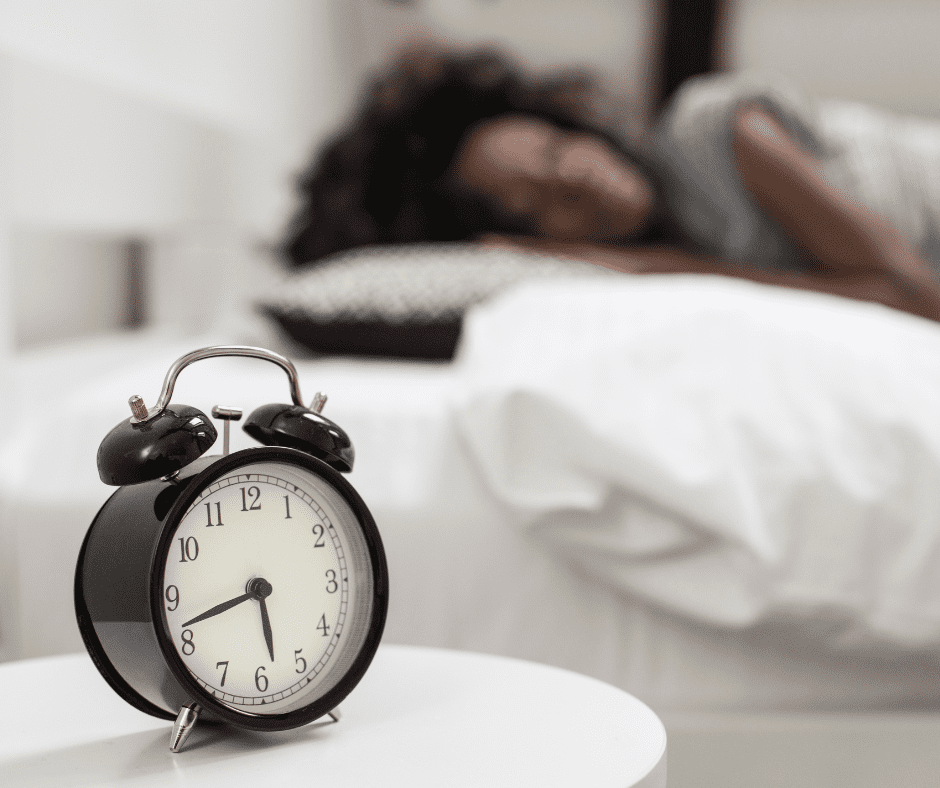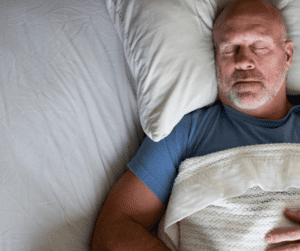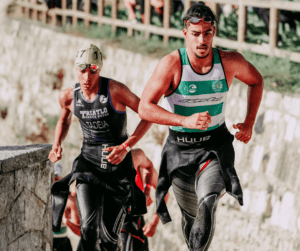You might think it’s called being lazy… we call it being successful!
According to the latest science, healthy adults should get seven to eight hours of sleep a night and endurance athletes should get eight to ten hours of sleep. This is because endurance athletes like runners need more sleep to aid in their recovery.
Let’s face it, sleep is where the magic happens…
Let’s find out if there is a magic number when it comes to how many hours of sleep runners require to improve their running performance.

How Much Sleep Do We ALL Need?
It’s been suggested by experts that adults (non-runners & runners) who sleep less than 7 hours a night are at greater risk of developing health issues compared to those who get 7 hours or more of sleep at night.
Research shows that runners do need more sleep than sedentary people. In this article, we look at several different studies proving that sleep is essential for runners. You can look at the science-based facts in this article.
Reasons why runners need more sleep compared to non-runners:
- Proper Recovery
- Increased Mileage = Increased Sleep Required
Recovery
To recover fully from your training you need to have a good quality & adequate amount of hours night’s sleep.
When you run, you aren’t just building your stamina and strength; you’re also breaking your body down, causing a tiny amount of tissue damage with every step.
So, allowing yourself time to recover after your runs is what makes it possible for you to come back better adapted for your next run.
The reason sleep is vital for recovery comes down to a specific hormone made by the pituitary gland that gets released into the bloodstream during the slow-wave sleep stage.
The human growth hormone (HGH).
HGH is a hormone produced by the pituitary gland and released into the bloodstream. HGH aids in repairing tissue, building muscle, strengthening bones, and converting fat to fuel.
Therefore, less sleep results in lower HGH levels, impacting the speed at that you’ll recover from your runs.
In this article, we explain how your body has to adapt to get stronger…
Increased Mileage = Increased Sleep Required
It’s simple math, as your mileage increases, so should your sleep.
During your peak training weeks, you may even need to take a page out of the elite runner’s books and include afternoon naps to your to-do list.
Let’s get right down to finding that magic number…

Is 5 Or 6 Or Even 7 Hours Of Sleep Enough For Runners?
Keep in mind that sleep varies from person to person and it’s important to remember that if you are slowly increasing your mileage then you should be increasing your sleep time too.
We’re not going to tell you not to run if you’ve only had 5, 6, or 7 hours of sleep because it depends on a few different factors.
The important thing to take note of is that you need to listen to your own body and not put any pressure on yourself.
Remember that getting out and going for your run will have a positive impact on your mood and energy levels even if you only had a few hours of sleep.
It all depends on the quality of those hours of sleep as well as what type of run you have planned.
If it is a long run then we recommend maybe shortening it depending on how you feel. If you’ve planned to do intervals then perhaps switch it out for a strength training day.
Only getting 5 or 6 hours of sleep in will decrease your running performance by impairing your concentration, slowing your reaction time, suppressing your aerobic activity, and increasing your cortisol and blood sugar levels.
You should gauge if your night’s sleep was of good quality by being aware of your daytime alertness and functioning and if you feel excessively drowsy… if these are the case and you are feeling drowsy then you need to get some more sleep.
So, what exactly happens to your body if you don’t sleep well…
Effects Of a Bad Night Of Sleep On a Runner’s Body
Getting an insufficient amount of sleep will lead to slower reaction times, abnormal hormone levels, and impaired cognitive function.
Sleep is exceptionally vital for improved running performance and a lack of sleep will impair your post-exercise recovery.
Not getting enough sleep can also impact your immune function which could lead to you getting sick.
Furthermore, continuing to train without getting enough sleep the night before increases your chance of getting injured.
Without getting a continuous amount of quality sleep each night your training progress will slow down, this is because your body will be producing less HGH to help repair your muscles and tissue.
According to research by the New York Obesity Nutrition Research Center, sleep-deprived people may consume roughly 300 calories or more per day.
This means that getting an adequate amount of sleep will help your body balance its hunger hormones.
A few more side effects of sleep deprivation:
- Heart disease
- Irregular heartbeat
- High blood pressure
- Diabetes
- Impaired judgment
- Low productivity
- Depression
- Decreased liver function
How Much Longer You Need To Sleep To Run Faster
You should always listen to your body and do what it’s telling based on your energy levels and how much sleep you get when you’re performing at your best. This will help you know how much sleep you function best on.
Let’s find out if it is possible to use sleep to improve your running performance… Here’s the answer!
Don’t Forget About Quality.

By now, you understand that high-quality sleep is vital to your training. If you absolutely can’t increase the number of sleep hours you get, at least prioritize the quality of sleep to ensure your few hours are good hours.
We know you’re busy and life is crazy and that you need to get up before the early birds to fit your training in… but too many days of neglecting a good night’s sleep will lead to a decrease in your running performance.
In this article, we give some tips to ensure that you have a good quality sleep, I’m sure you’ll find it helpful.



Comments are closed.